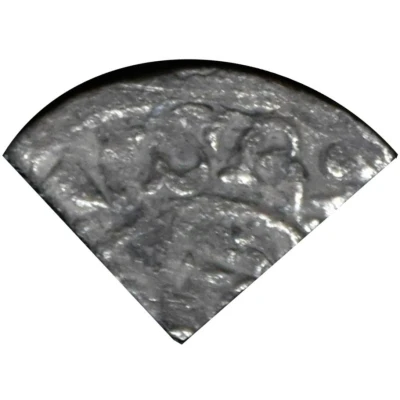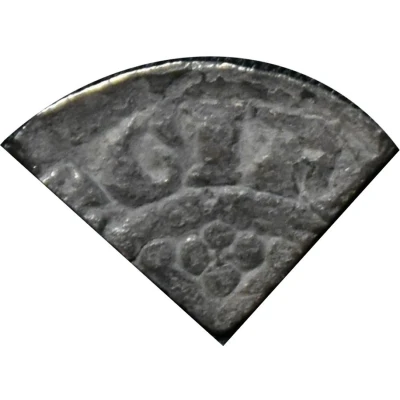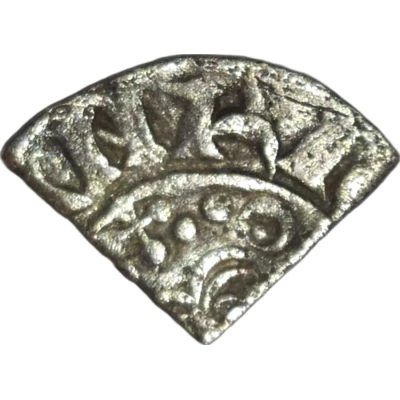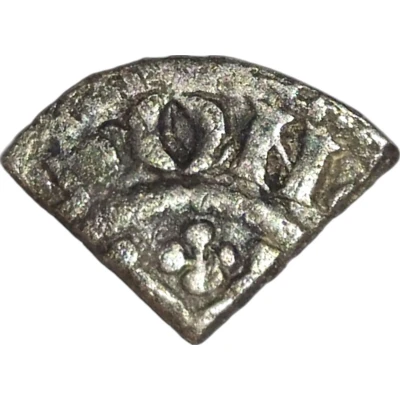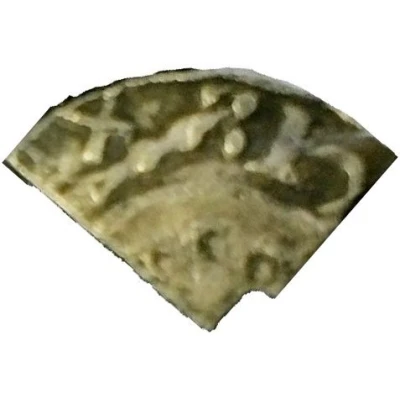
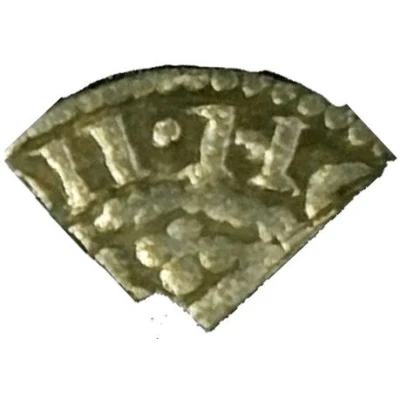

© Tthecoinman
1 Farthing - Henry III Short Cross type; class 7a ND
| Silver | - | 10 mm |
| Issuer | England (United Kingdom, British Overseas Territories and Crown Dependencies) |
|---|---|
| King | Henry III (1216-1272) |
| Type | Standard circulation coin |
| Years | 1216-1247 |
| Value | 1 Farthing (1⁄960) |
| Currency | Pound sterling (1158-1970) |
| Composition | Silver |
| Diameter | 10 mm |
| Thickness | 1 mm |
| Shape | Quarter circle |
| Technique | Hammered |
| Demonetized | Yes |
| Updated | 2024-10-08 |
| Numista | N#363887 |
|---|---|
| Rarity index | 97% |
Reverse
Segment of voided short cross with quatrefoils of pellets in angles within inner beaded circle, moneyer and mint name around.
Script: Latin
Comment
House of Plantagenet (1154-1399), Henry III (1216-72), Short Cross coinage (1216-47), Class 7a, Silver cut farthing.Uncut penny struck at London or one of the regional mints c. 1218-20 (ref. Sp#1356A, North#978).
Medieval coins were cut into halves and quarters to provide fractional denominations without the need to strike new coins. It is thought these were generally cut at the mint, although it is also likely to have happened during transactions. Cut farthings are known in England from Anglo-Saxon times (c. 750s) until Edward I introduced round farthings and halfpennies in the new coinage of 1279.
Interesting fact
One interesting fact about the 1 Farthing coin of Henry III (Short Cross type; class 7a) is that it was minted during a time of great economic change in England. The coinage reform of 1247, which introduced this coin, aimed to stabilize the currency and combat inflation by introducing a new standardized system of coinage. This coin, made of silver, was a significant departure from the previous coinage system, which had been in place since the time of King Offa in the 8th century. The introduction of the 1 Farthing coin marked a turning point in the history of English currency and paved the way for the development of modern coinage.
